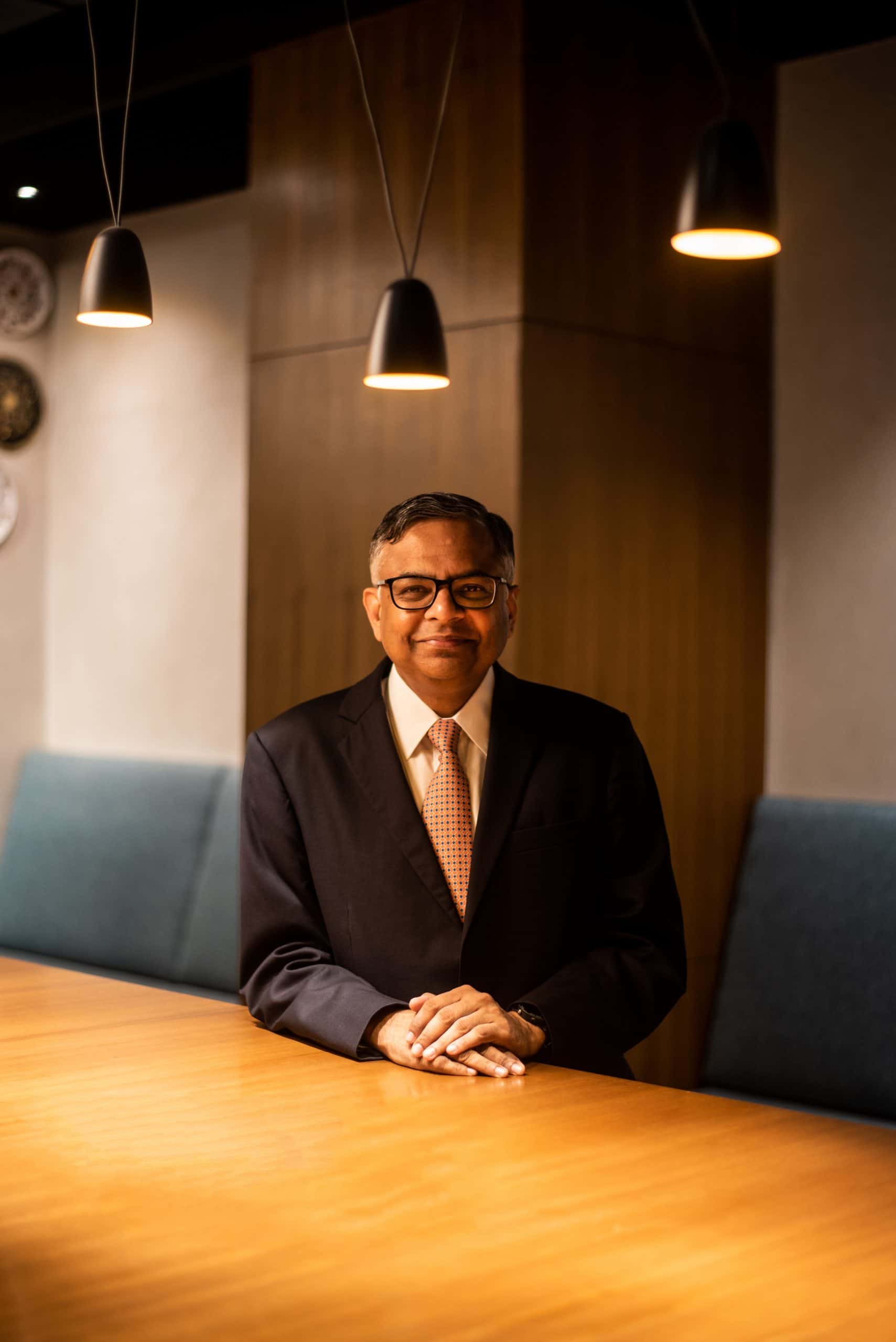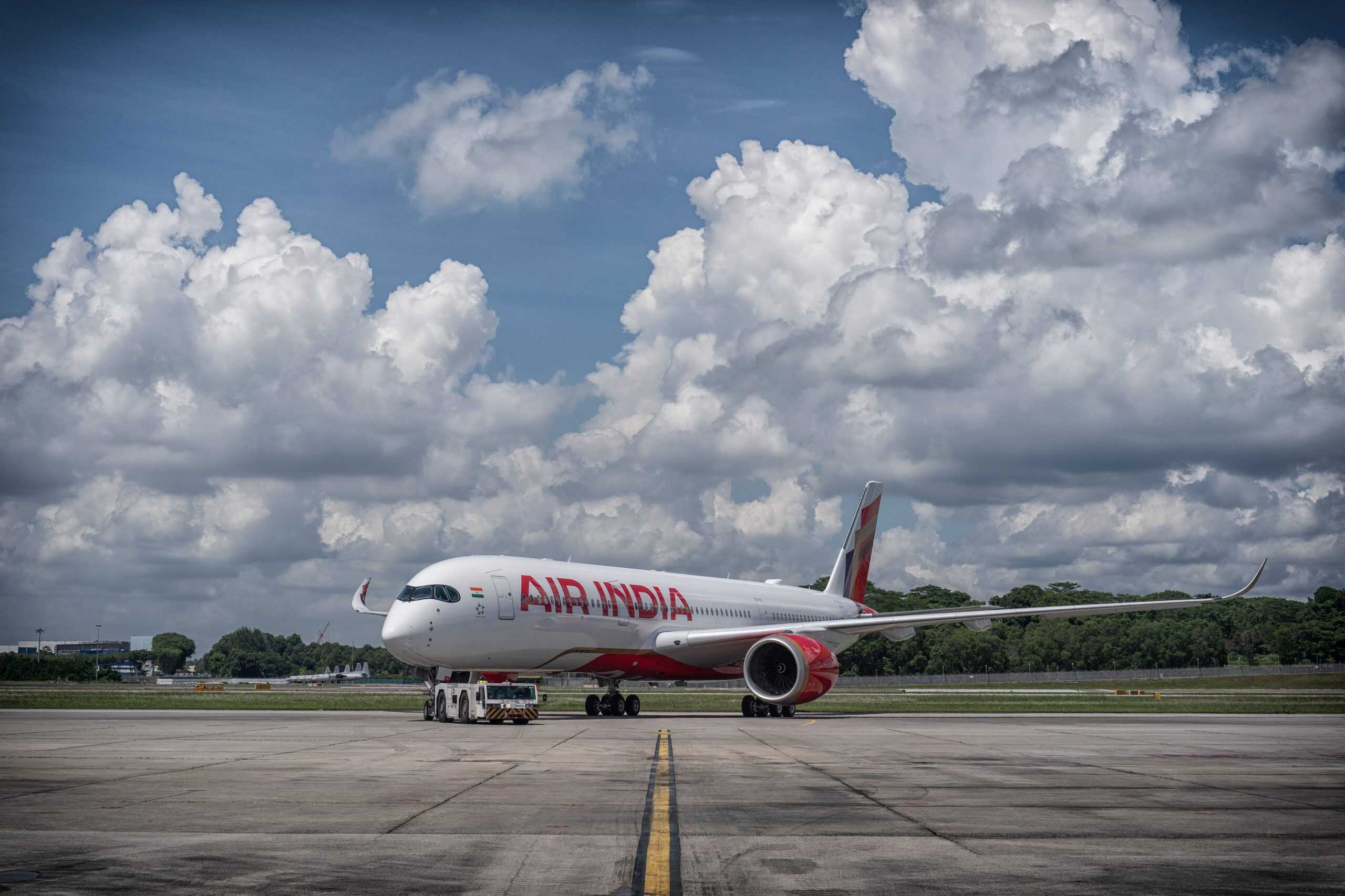Tata’s global footprint is expanding under Natarajan Chandrasekaran, with strategic IPOs, clean mobility, and digital transformation leading the charge.

Natarajan Chandrasekaran, better known across boardrooms and business summits as “Chandra”, has emerged as a towering figure in the global business landscape. Since taking charge as Chairman of Tata Sons in 2017, he has steered India’s oldest and most influential conglomerate into a future powered by innovation, inclusion, and integrity. Tata Group, with its 156-year-old legacy spanning steel, IT, aviation, automobiles, hospitality, and retail, has found in Chandra a leader who balances tradition with transformation, legacy with leap.
A Journey Rooted in Grit and Vision
Born in 1963 in Mohanur, Tamil Nadu, Chandra’s rise through the ranks reflects resilience and vision. Educated in a government school, he pursued Applied Sciences at Coimbatore Institute of Technology and earned a Master’s in Computer Applications from NIT Trichy. In 1987, he joined Tata Consultancy Services (TCS) as a programmer, marking the beginning of a transformative career within the Tata ecosystem.
By 2009, Chandra had risen to become CEO of TCS, overseeing its expansion into a global IT powerhouse. His appointment in 2017 as the first professional, non-Parsi Chairman of Tata Sons signalled a new era. He brought a fresh outlook without compromising the values that defined Tata’s legacy.
Recognition came swiftly. In 2022, he was awarded the Padma Bhushan. France followed with the Légion d’Honneur in 2023, and the UK conferred an honorary knighthood in 2025 for his role in strengthening international business ties and Tata’s growing investments.
Building ‘One Tata’: Innovation and Synergy
Chandrasekaran’s leadership is rooted in the “One Tata” philosophy, a mission to integrate the group’s 100+ companies into a more collaborative and efficient enterprise. The idea is not only structural cohesion but strategic alignment that drives long-term value.
TCS continues to lead in digital transformation, investing in AI, analytics, and cloud services. Under Chandra’s guidance, Tata companies are sharpening focus on agility, innovation, and internal synergy—ensuring that the group remains relevant in a hyper-digital age.
Yet the transformation extends far beyond technology.
The Skyward Journey: Air India’s Comeback

In 2022, Tata Group reclaimed ownership of Air India—nearly 70 years after its nationalisation. The return of the airline, originally founded by J.R.D. Tata, was deeply symbolic. The group, via its arm Talace Private Limited, acquired Air India, its low-cost wing Air India Express, and half of Air India SATS, a ground-handling joint venture.
Since the acquisition, Tata has set about rebuilding Air India into a global player. A new brand identity and aircraft livery were launched in 2023. Plans to consolidate Vistara and AirAsia India under the Air India brand are underway, aiming to create a unified airline powered by efficiency, service excellence, and global competitiveness.
Green Goals, Real Action
Sustainability has become a cornerstone of Tata’s future. Under the group’s “Aalingana” initiative, companies across the Tata portfolio are setting ambitious targets on emissions reduction and circular economy practices.
Tata Power, for instance, is leading the charge with a 5 GW hydroelectric project in Bhutan. In partnership with Tata Motors, it is also working on a 131 MW wind-solar hybrid project aimed at offsetting over 200,000 tonnes of CO₂ emissions annually.
In the UK, Tata Steel is investing £1.25 billion in transitioning its South Wales steelworks to greener technologies. These moves reflect the group’s intent to build not just profit, but planetary health into its business model.
Driving India’s EV Dream
Tata Motors has emerged as the leader in India’s electric vehicle space. With advanced EV models already on roads and a new IPO lined up in 2025 for its electric mobility arm—Tata Passenger Electric Mobility—the company is shaping how India drives into the future.
At the same time, the group is investing in semiconductors, electronics, and battery gigafactories. These efforts aim to secure Tata’s place in the global supply chain for clean and connected transport solutions.
Global Aspirations, Local Commitment
With six IPOs in the pipeline for 2025, including BigBasket and Tata Advanced Systems, the group is pushing into new frontiers like e-commerce, aerospace, and defence. In the UK, Tata is one of the largest employers in the private sector, with over 70,000 employees.
Tata’s collaborations in the UK now span technology, hospitality, steel, and chemicals, signalling a deepening economic partnership that is as strategic as it is sustainable.
More Than Business: A Blueprint for Social Impact
Two-thirds of Tata Sons’ shares are held by philanthropic trusts—a fact that shapes how the company thinks about success. For Tata, profits are a means, not the end.
By 2025, the group aims to positively touch the lives of a quarter of the global population.
Its CSR initiatives reflect this scale and purpose:
- Education: Scholarships, digital literacy, and programs like Internet Saathi, which has empowered over 30 million rural women.
- Healthcare: Hospital infrastructure, pandemic response, and rural health outreach.
- Water and Sanitation: Community water systems and sanitation access for underserved regions.
- Skill Development & Women Empowerment: Through Tata STRIVE and other training platforms.
- Agricultural Development: Initiatives like Lakhpati Kisan and Tata Dairy Mission that aim to build sustainable rural livelihoods.
- Disaster Relief: Quick response systems for emergencies and public health crises.
Tata Trusts, some of India’s oldest charitable institutions, remain central to this vision. They deploy funds across education, innovation, livelihoods, and public health, reinforcing a model where wealth flows back into the communities that make it possible.
The group’s sustainability roadmap includes cutting absolute carbon emissions by 25% by 2030 and doubling the share of recycled or renewable materials in products by 2025.
A Philosophy Anchored in Ethics and Excellence
Chandrasekaran’s leadership style blends engineering discipline with ethical clarity. He’s an active member of the IEEE, the Computer Society of India, and has chaired industry forums like NASSCOM. These affiliations reflect a professional who understands the weight of influence—and the responsibility it brings.
His “One Tata” approach is not limited to internal collaboration. It encompasses a broader vision: leveraging the group’s combined strengths in technology, energy, and innovation to provide real-world solutions that benefit both consumers and communities.
Growth with Soul
Under Natarajan Chandrasekaran, Tata Group is scripting a new chapter, one that respects legacy while reaching ahead. Growth no longer means expansion alone. It means cleaner energy, stronger communities, better access, and deeper impact.
Chandra’s Tata is an enterprise where business growth and social good are not rivals, they are co-travellers. And that’s a legacy worth building on.
Read more – Latest



